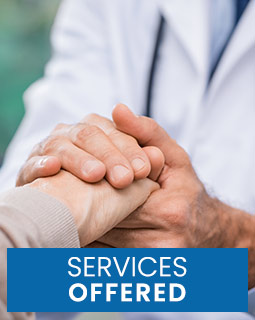Found a Lump During Breast Self Examination, Now What?
While not all breast changes are early signs of cancer, it is important to visit your healthcare provider to rule out any potential health concerns through additional tests. At Reliable MD our experienced and top-rated primary care physicians provide specialized and comprehensive care. For more information, contact us today or book an appointment online. We are conveniently located at 2801 Fruitville Rd Unit 140, Sarasota, FL 34237.


Table of Contents:
What Should You Do If You Detect a Lump?
What Are the Additional Signs of Breast Cancer?
Clinical Breast Exams
What Should You Do After Visiting Your Doctor?
To maintain good breast health, women are encouraged to perform a breast self-exam (BSE) once a month to check for any inconsistencies or changes. Breast lumps, often discovered during a BSE, are variations in the breast tissue that can be an early sign of breast cancer. Despite the fact that most lumps are benign, it is important to understand the different types of lumps and what to do if you Found a Lump During Breast Self Examination.
If you discover a lump during a breast self-exam, try to remain calm. Women often have naturally lumpy breasts, especially when menstruating. It’s important, however, to take note of any abnormalities and see a doctor for further evaluation. Your doctor will likely perform additional exams to determine if the lump is cause for concern.
While performing your breast self-exam, it is important to take note of any changes in the appearance of your breasts. This includes changes in texture and consistency, as well as the presence of any lumps. Additional warning signs to be aware of include changes in the shape or size of your breasts, dimpling of your skin, nipple inversion, fluid discharge from your nipple, and redness.
Furthermore, if you experience consistent pain in one area for two to three weeks, it is essential that you reach out to your doctor.
While not all breast changes are early signs of cancer, it is important to visit your healthcare provider to rule out any potential health concerns through additional tests.
While self-breast exams are important, they do not replace the need for clinical breast exams performed by a healthcare professional. In the event that you notice any suspicious lumps or changes in your breasts, your doctor may perform a clinical breast exam to further evaluate the area.
During a clinical breast exam, your doctor will examine and feel both breasts and under your arms for lumps or irregularities. Your doctor may also check your nipples for any changes or discharge. The exam usually only takes a few minutes and can be performed in your doctor’s office or clinic.
If your doctor finds anything suspicious, they may order additional tests, such as a mammogram or ultrasound, to get a better look at the area in question. In some cases, a biopsy may be needed to determine if the lump is cancerous. Other tests ordered by your doctor may include a 3D mammogram, breast MRI, or ultrasound.
Depending on the diagnosis you receive, it is important to follow any recommended steps provided by your doctor. A breast cancer diagnosis will enable your doctor to tailor a treatment plan specifically for your stage and type of cancer. There are many effective treatments available, including surgery, radiation therapy, and chemotherapy. Some women may also choose to take medication to help prevent cancer from returning.
If a lump is deemed non-cancerous, consider getting a second opinion from another medical professional. Your doctor may also have you follow up with them for additional exams to check for changes.
Your doctor may recommend genetic testing for breast cancer gene mutations if you have a family history of breast cancer. The examination assists in determining whether you have a higher chance of developing breast cancer. Your doctor may also recommend that you have more frequent breast cancer screenings. It’s critical to remember that breast cancer is treatable, and there are many options available.
To discuss any breast health concerns, set up an appointment with Reliable MD by clicking here to get a quick-moving diagnosis and treatment plan. We serve patients in Sarasota County on Fruitville Rd, which is close to Whitfield Ave, Bee Ridge Rd, Lockwood Ridge Rd, and beyond! We also provide telehealth services, serving the entire state of Florida.







